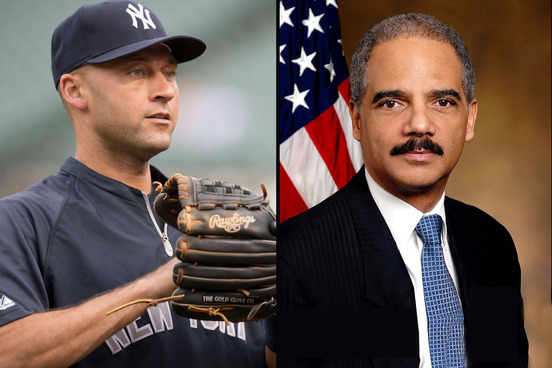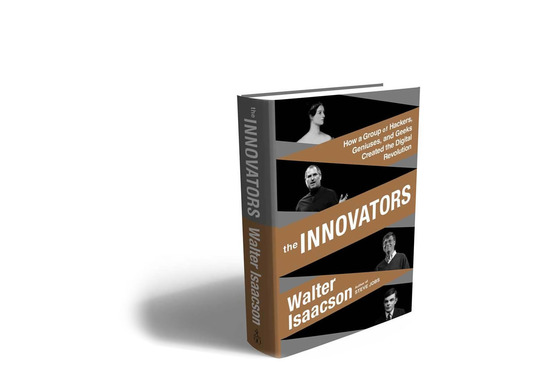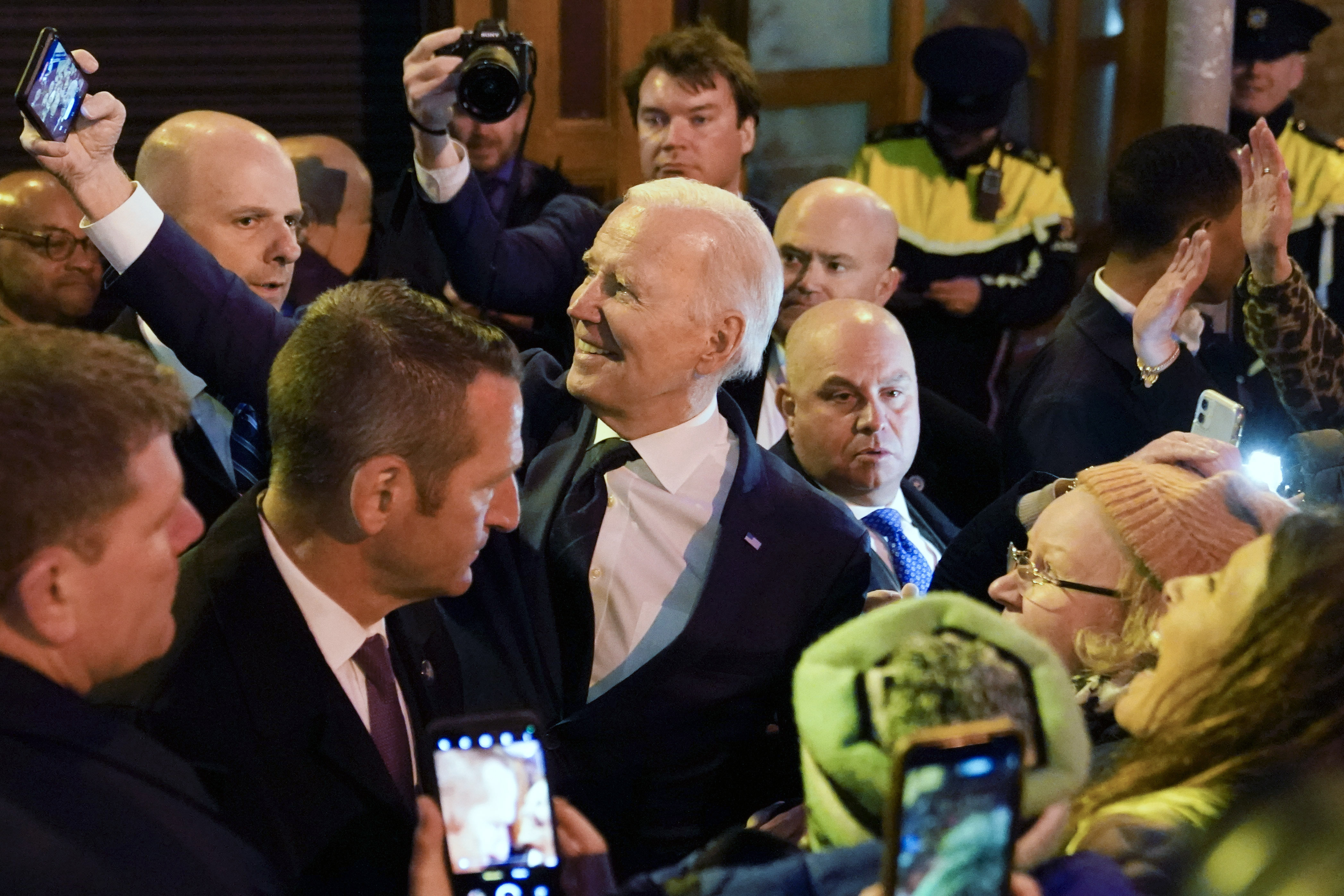Culture is a big word at back-to-school time each year, but this year lookups extended beyond the academic calendar. The term conveys a kind of academic attention to systematic behavior and allows us to identify and isolate an idea, issue, or group: we speak of a «culture of transparency» or «consumer culture.» Culture can be either very broad (as in «celebrity culture» or «winning culture») or very specific (as in «test-prep culture» or «marching band culture»).
This year, the use of the word culture to define ideas in this way has moved from the classroom syllabus to the conversation at large, appearing in headlines and analyses across a wide swath of topics.
From Mad Men, Boardwalk Empire, and Downton Abbey to the 50th anniversary of the Beatles’ arrival in America, this was a year in which entertainment coverage drove curiosity about the word nostalgia. But the annexation of Crimea (with coverage of «Soviet nostalgia») and the defeat of Eric Cantor (with discussions of “the politics of nostalgia”) also led to spikes in lookups.
Overall, lookups of nostalgia more than doubled this year.
Nostalgia comes from a Greek word meaning «to return home»; it originally meant «homesickness» in English.
Lookups for the word insidious were driven by three very disparate triggers: The word spiked when the horror sequel Insidious 3 was announced, and the film’s publicity provoked curiosity about the title itself. Increasingly sophisticated malware attacks were frequently described as insidious this year. And finally, the most poignant use of the word followed the death of Thomas Eric Duncan, the first person diagnosed with Ebola in the U.S. In a statement, the hospital’s spokesperson said that «Mr. Duncan succumbed to an insidious disease, Ebola.» The medical definition of insidious is very specific:
of a disease: developing so gradually as to be well established before becoming apparent
Insidious comes from a Latin word meaning «ambush.»
Photo: Derek JeterKeith Allison on Flickr / Eric Holderwikipedia
Departures and retirements brought legacy into the news: Ben Bernanke left after eight years at the Fed; Barbara Walters retired from The View; Attorney General Eric Holder announced that he would step down; and Derek Jeter played his last games as a Yankee.
Legacy was also used in discussions around the centennial of the beginning of World War I, the 50th anniversary of the Civil Rights Act of 1964, and the 40th anniversary of Watergate.
Legacy often is used to mean «lasting impact»; it can be used both to mean something we receive from the past or something we leave for the future.
Lookups for feminism were strong throughout the year, with particular spikes following the Supreme Court’s Hobby Lobby decision, discussions on women in the video games industry, and the announcement of TIME’s list of 100 Most Influential People — a list including Beyoncé, Miley Cyrus, and Pharrell Williams. TIME’s claim that 2014 was the «year of pop feminism» sent many people to the dictionary.
The campus shootings in Santa Barbara were followed by the discovery of a manifesto expressing hatred of women, which led to broader conversations about misogyny and feminism.
A television commercial shows two men eating Sonic chicken wings, one of whom states that the delicious wings will become his new «wingman» for dating, making him irresistible. His friend is skeptical: «Oh, right, gonna give you that certain je ne sais quoi?» The first man misunderstands and demands: «Jenna said what?»
Je ne sais quoi is an expression that means «a pleasant quality that is hard to describe.» In French, the phrase literally means «I know not what.» It’s used as a noun in English, and, as is often the case with French phrases, is a fancy way of saying what one wants to say.
Innovation has been a business buzzword for some time, but this year the concept made headlines. In June, Clayton Christensen’s The Innovators Dilemma, one of the most well-known books on the subject, was subjected to critical scrutiny by Jill Lepore in an article in The New Yorker, and in October, Walter Issacson’s book The Innovators examined how innovation takes place. These discussions, and others like them, seemed to have gotten people thinking about innovation, as look-ups for innovation were up more than 30% over last year.
Just because we live in the Information Age doesn’t mean we want all our information to be public, but publicity around otherwise private or undercover actions was rampant this year. Surreptitious spiked as news broke of covert government data collection and intelligence gathering. Breaches of credit card security at stores like Target and Home Depot also drove lookups and are emblematic of our digital growing pains.
The release of a recording of L.A. Clippers owner Donald Sterling making racist comments in private also caused a spike in lookups for surreptitious.
This year is also the 40th anniversary of President Nixon’s resignation following the Watergate scandal — and surreptitious was used to describe the crimes that led to the president’s downfall.
There were several stories of political autonomy in the news this year: the referendum in Scotland, the situation in Ukraine, and the position of the Kurds among them. But the biggest spike in lookups took place this fall, as the demonstrators in Hong Kong demanded free elections and more autonomy beginning in 2017.
Morbidity spiked dramatically in September, with reports on the condition of Thomas Eric Duncan, the first person to succumb to Ebola in the U. S.
One reason this word has probably been looked up so frequently is because of confusion over morbidity and mortality. Morbidity comes from the Latin word for «disease» (morbus) and means «the relative incidence of disease,» whereas mortality comes from the Latin word for «death» (mors) and means «the number of deaths in a given time or place.»
See our editor at large, Peter Sokolowski, talk about the 2014 Word of the Year selections; plus check out our Word of the Year Retrospective, with editors’ top picks from past years.
A nation, a workplace, an ethnicity, a passion, an outsized personality. The people who comprise these things, who fawn or rail against them, are behind Merriam-Webster’s 2014 word of the year: culture.
The word joins Oxford Dictionaries’ «vape,» a darling of the e-cigarette movement, and «exposure,» declared the year’s winner at Dictionary.com during a time of tragedy and fear due to Ebola.
Merriam-Webster based its pick and nine runners-up on significant increases in lookups this year over last on Merriam-Webster.com, along with interesting, often culture-driven — if you will — spikes of concentrated interest.
In the No. 2 spot is «nostalgia,» during a year of big 50th anniversaries pegged to 1964: the start of the free speech movement, the passage of the Civil Rights Act, the birth of the Ford Mustang and the British Invasion heralded by the landing of the Beatles on U.S. soil for the first time.
Nostalgia was followed by insidious, legacy, feminism and a rare multiword phrase that can be looked up in total, in a foreign language at that: the French «je ne sais quoi.»
The Springfield, Massachusetts-based dictionary giant filters out perennial favorites when picking word of the year, but does that formula leave them chasing language fads?
«We’re simply using the word culture more frequently,» said Peter Sokolowski, editor at large for Merriam-Webster. «It may be a fad. It may not. It may simply be evolution.»
U.S. & World
Sokolowski noted that the reasons words are looked up aren’t just about not knowing what they mean. Sometimes, he said, we seek inspiration or a way to check in on ourselves. Of an estimated 100 million lookups on the website each year and a similar number on the company’s app, culture enjoyed a 15 percent year-over-year increase.
Percentage-wise, it doesn’t sound like much, but the raw number in that stratosphere is large, Sokolowski said. He wouldn’t disclose actual numbers, though, citing the proprietary nature of that data for a company still privately held.
Sokolowski is a lexicographer, not a mind reader, so his observations about why any single word takes off in terms of lookups is well-informed but theoretical.
«The word culture’s got a cultural story. We have noticed for years that culture has a cyclical spike every year at around Labor Day. That is to say back to school time during the month of September, so we’ve been watching this word spike at that time for years,» he said by telephone from Springfield. «In recent years we’ve seen similar spikes at the end of semesters during finals.»
But traffic throughout the year indicates that culture is a «chameleon,» Sokolowski said. «When you put it next to another word it means something very different. For example, ‘consumer culture’ or ‘rape culture,’ which we’ve been reading about lately.»
There’s the «culture of transparency» in government and business, and «celebrity culture,» and the «culture of winning» in sports, he noted. «It’s a word that can be very specific, like ‘test prep culture,’ or it can be very, very broad, like ‘coffee culture.'»
One standout reference that caught Sokolowski’s eye in The New Yorker’s December issue is from a new book, «How Google Works,» which includes a description of a software fix by a few engineers that made ads more relevant on the search engine:
«It wasn’t Google’s culture that turned those five engineers into problem-solving ninjas who changed the course of the company over the weekend,» wrote the authors, former Google CEO Eric Schmidt and former head of product development Jonathan Rosenberg.
«Rather it was the culture that attracted the ninjas to the company in the first place.»
Before the word culture exploded, Sokolowski said, «we used to talk about ‘society’ a lot. Certain groups are taking ‘society’ out of their names now. It seems to be receding. Part of that seems to be because it’s elitist. We’re using the word culture more frequently in that place.»
Not all lookup spikes are quite that complex. The reason «je ne sais quoi» landed at No. 6, for instance, is «dead simple,» he said.
The fast-food drive-in chain Sonic, known for TV spots featuring two goofy dudes eating in a car, had them munching on boneless chicken wings in September.
«I’ve finally found myself a wingman,» goofy guy No. 1 says of the wings he hopes will make him a chick magnet.
«Oh right,» sneers goofy guy No. 2, «gonna give you that certain je ne sais quoi.»
Responds No. 1: «Jenna said what?»
They mine the word play a couple more times, but you get the picture.
«Since September when this ad came out this word has been close to the Top 10 or in the Top 10 of our lookups almost every single day,» Sokolowski said.
Fast-food aside, he called this year’s list a relatively sober one.
Insidious, for example, received a bump early in the year when a new trailer was released for «Insidious: Chapter 3,» a prequel in the horror film franchise «Insidious,» out in June. The word surfaced in a big way again, on Oct. 8, when a Texas hospital released a statement on the death of Thomas Eric Duncan, the first confirmed Ebola patient in the United States.
The statement spoke of his courageous battle and the hospital’s profound sadness when he «succumbed to an insidious disease, Ebola.»
Rounding out the Top 10 are innovation, surreptitious, autonomy and morbidity.
«This is a fairly sober list. It was a fairly sober year,» he concluded.
‘Culture’ has been named word of the year by Merriam-Webster, followed by ‘nostalgia’, ‘insidious’ and ‘legacy’.
Sayings such as ‘celebrity culture’, ‘culture of winning’ and ‘coffee culture’ have contributed to the word becoming the most searched on the dictionary’s website, a 15 per cent increase on 2013.
The word joins Oxford Dictionaries’ ‘vape’, a popular term as a result of the spike in e-cigarette use,, and Dictionary.com’s ‘exposure’, as words of the year 2014.
Winner: Merriam-Webster has declared that ‘culture’, used to describe everything from hipsters to cafes, embodied in London’s Cereal Killer Cafe (pictured)
Runner-up ‘nostalgia’, can be explained by a number of big 50th anniversaries pegged to 1964: the start of the free speech movement, the passage of the Civil Rights Act, the birth of the Ford Mustang and the British Invasion heralded by the landing of the Beatles on U.S. soil for the first time.
Nostalgia was followed by insidious, legacy, feminism and a rare multiword phrase that can be looked up in total, in a foreign language at that: the French ‘je ne sais quoi.’
‘We’re simply using the word culture more frequently,’ said Peter Sokolowski, editor at large for Merriam-Webster. ‘It may be a fad. It may not. It may simply be evolution.’
Sokolowski noted that the reasons words are looked up aren’t just about not knowing what they mean. Sometimes, he said, we seek inspiration or a way to check in on ourselves.
Of an estimated 100 million lookups on the website each year and a similar number on the company’s app, culture enjoyed a 15 per cent year-over-year increase.
New trend: Oxford Dictionaries declared ‘vape’ Word Of The Year 2014, after e-cigarettes grew in popularity
‘The word culture’s got a cultural story. We have noticed for years that culture has a cyclical spike every year at around Labor Day.
‘That is to say back to school time during the month of September, so we’ve been watching this word spike at that time for years.
‘In recent years we’ve seen similar spikes at the end of semesters during finals.’
But traffic throughout the year indicates that culture is a «chameleon»,’ Sokolowski said.
‘When you put it next to another word it means something very different. For example, «consumer culture» or «rape culture», which we’ve been reading about lately.
‘There’s the «culture of transparency» in government and business, and «celebrity culture», and the «culture of winning» in sports.
‘It’s a word that can be very specific, like «test prep culture», or it can be very, very broad, like «coffee culture».’
Who run the world? ‘Feminist’ came in at number five, a word which has gained prominence through several campaigns, social media and celebrities such as Beyonce proudly declaring herself a feminist
One standout reference that caught Sokolowski’s eye in The New Yorker’s December issue is from a new book, ‘How Google Works,’ which includes a description of a software fix by a few engineers that made ads more relevant on the search engine:
‘It wasn’t Google’s culture that turned those five engineers into problem-solving ninjas who changed the course of the company over the weekend,’ wrote the authors, former Google CEO Eric Schmidt and former head of product development Jonathan Rosenberg.
‘Rather it was the culture that attracted the ninjas to the company in the first place.’
TOP TEN WORDS 2014 ACCORDING TO MERRIAM-WEBSTER
1. Culture
2. Nostalgia
3. Insidious
4. Legacy
5. Feminism
6. ‘Je ne sais quoi’
7. Innovation
8. Surreptitious
9. Autonomy
10. Morbidity
Before the word culture exploded, Sokolowski said, ‘we used to talk about «society» a lot.
‘Certain groups are taking «society» out of their names now. It seems to be receding. Part of that seems to be because it’s elitist. We’re using the word culture more frequently in that place.’
Not all lookup spikes are quite that complex. The reason ‘je ne sais quoi’ landed at No. 6, for instance, is ‘dead simple,’ he said, following a popular television ad for American fast-food drive-in chain Sonic.
‘Since September when this ad came out this word has been close to the Top 10 or in the Top 10 of our lookups almost every single day,’ Sokolowski said.
Fast-food aside, he called this year’s list a relatively sober one.
Insidious, for example, received a bump early in the year when a new trailer was released for ‘Insidious: Chapter 3,’ a prequel in the horror film franchise ‘Insidious,’ out in June.
The word surfaced in a big way in October, when a Texas hospital released a statement on the death of Thomas Eric Duncan, the first confirmed Ebola patient in the United States.
The statement spoke of his courageous battle and the hospital’s profound sadness when he ‘succumbed to an insidious disease, Ebola.’
Rounding out the Top ten are innovation, surreptitious, autonomy and morbidity.
‘This is a fairly sober list. It was a fairly sober year,’ he concluded.
Merriam-Webster has named its «Word of the Year.» And that word is… «culture»?
Yes, the boring, ambiguous, not-really-specific-to-2014 word «culture» has been elevated beyond all the others by the dictionary maker. For comparison’s sake, Oxford selected «vape» for obvious reasons, while Dictionary.com deemed «exposure» worthy of the distinction because of its association with the Ebola outbreak. Both fit the criteria of what one would normally think of as a word of the year, namely a new or newish word that has risen to prominence in the past 365 days (i.e., Oxford’s 2013 Word of the Year, «selfie»), or a familiar word that has been cast in an entirely new light because of the previous year’s events.
But the meaning and usage of «culture» haven’t really changed in the past year. Why did it get picked then? Because Merriam-Webster bases its choice solely on how many people look up words, not on the words’ current cultural significance. This also explains how «insidious» came in at number three on Webster’s list (people rushed to look up its meaning after seeing the Insidious: Chapter 3 trailer), and how «je ne sais quoi» came in at number six (people looked it up after it was featured in one of those admittedly pretty funny Sonic ads in which two guys bicker back in forth while eating tater tots or drinking slushies). So, in other words, Merriam-Webster’s choices for the words of the year are susceptible to some odd statistical outliers. If, in 2015, a studio decided to release a film called Abnegation: The Grand Refusal, «abnegate» might just crack next year’s top 10. (Mercifully, as far as we can tell, no such production is in the works.)
This purely quantitative approach to selecting the word of the year didn’t stop Merriam-Webster editor at large Peter Sokolowski from trying to explain the number-one choice. «We’re simply using the word ‘culture’ more frequently,» he told the AP. «It may be a fad. It may not. It may simply be evolution.»
«It’s a word that can be very specific, like ‘test prep culture,’ or it can be very, very broad, like ‘coffee culture,'» he went on.
«Culture» brought home the title because of a 15-percent uptick in lookups, which, unfortunately, most people probably don’t care much about. Because, well, it’s hard to get very excited about a word as broad as culture. Still, over here at The Culture Blog, we’ll take it over last year’s Merriam-Webster Word of the Year: «science.»
Here’s Merriam-Webster’s full list for 2014:
1. Culture
2. Nostalgia
3. Insidious
4. Legacy
5. Feminism
6. Je ne sais quoi
7. Innovation
8. Surreptitious
9. Autonomy
10. Morbidity
While other dictionaries have gone with catchier terms, the dictionary editors at Merriam-Webster has picked a broad term as 2014’s word of the year: culture.
Culture has «moved from the classroom syllabus to the conversation at large, appearing in headlines and analyses across a wide swath of topics,» the company wrote on its website. Rather than picking a specific word that reflects on the year as a whole, the editors rank top terms based on which ones had a spike in lookups on its website.
It’s already a popular word, but culture has had a surge in interest this year because it can mean so many things. «When you put it next to another word it means something very different, Peter Sokolowski, editor at large for Merriam-Webster, told the Associated Press. «For example, ‘consumer culture’ or ‘rape culture,’ which we’ve been reading about lately.» There has also been a flurry of business stories this year about «corporate culture» or a «culture of transparency.»
The runner-up was nostalgia, which is everywhere online, especially of the ’90s variety. Following that were insidious, legacy and feminism. It’s surprising feminism didn’t rank higher, since everyone from Beyoncé to the Supreme Court tackled the topic this year.
More From Harper’s BAZAAR
Though the Oxford Dictionaries chose «vape» and Dictionary.com went with «exposure,» Merriam-Webster’s picks were a little more, well, by-the-book. «This is a fairly sober list. It was a fairly sober year,» Sokolowski told the AP. Here are their top 10 words of 2014:
1. Culture
2. Nostalgia
3. Insidious
4. Legacy
5. Feminism
6. Je ne sais quoi
7. Innovation
8. Surreptitious
9. Autonomy
10. Morbidity














